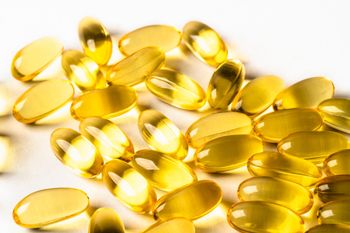
Alzheimer’s study sheds light on how DHA absorbed in brains with cognitive decline
APOE4—a gene variant linked to inflammation in the brain and a known factor for increasing Alzheimer’s disease risk may reduce delivery of DHA and EPA to the brain before the onset of cognitive impairment, requiring higher doses of DHA.
A new study published in
Although a previous study tested the effects of high doses of omega-3 on blood and cerebrospinal fluid (CSF) — the fluid that bathes the brain — in patients with AD, this new study is the first to examine omega-3’s effect in people without AD.
The study consisted of 33 men and women aged 55 and older who have a family history of the disease — 15 of the subjects carried APOE4. They were separated into two groups: The treatment group supplemented an omega-3 capsule containing 2,152 mg of DHA for six months (previous clinical trials used 1 gram of omega-3s) and were also instructed to otherwise limit their polyunsaturated fatty acid intake. The control group supplemented with a placebo. Both groups were instructed to take vitamin B complex supplements daily, which help the body process omega-3s.
After six months, the treatment group had a 200-percent increase in their blood plasma DHA levels compared with the placebo group, but the DHA in the CSF went up by only 28 percent. However, that 28 percent increase was better than that previously reported with lower DHA doses.
In both the plasma and CSF measurements, the percentage increase for DHA for those who did not carry a copy of the APOE4 gene was higher than for those who were carriers. Further, those in the treatment group who did not carry the APOE4 gene variant showed an increase of EPA in their CSF, which was three-times greater than that seen in the APOE4 carriers.
The study authors believe these results hint that omega-3 levels in the blood may not indicate how much EPA and DHA is reaching the brain.
Reference
- Isabella C et al. “Brain delivery of supplemental docosahexaenoic acid (DHA): A randomized placebo-controlled clinical trial” EBioMedicine, Published online ahead of print on July 17, 2020
Newsletter
From ingredient science to consumer trends, get the intel you need to stay competitive in the nutrition space—subscribe now to Nutritional Outlook.





